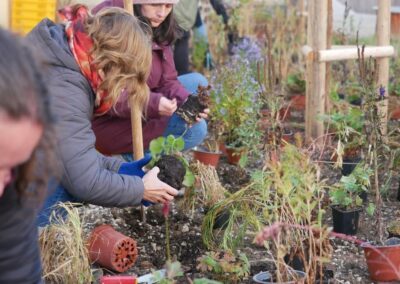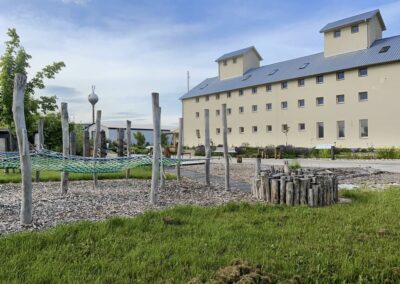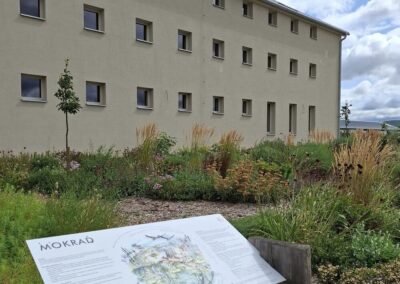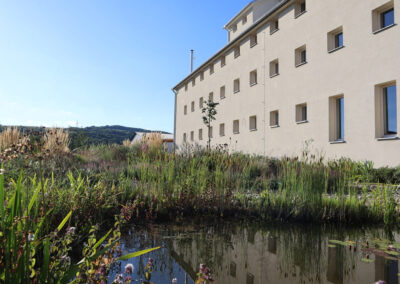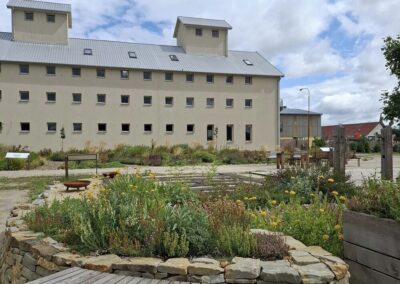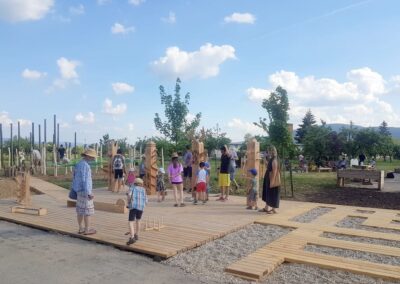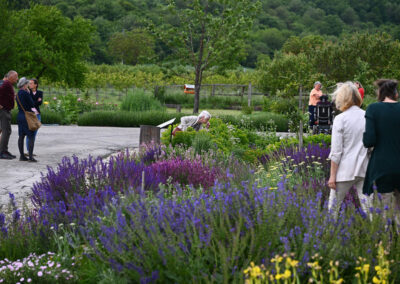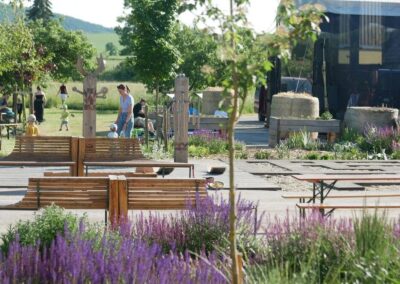Moravské Lieskové
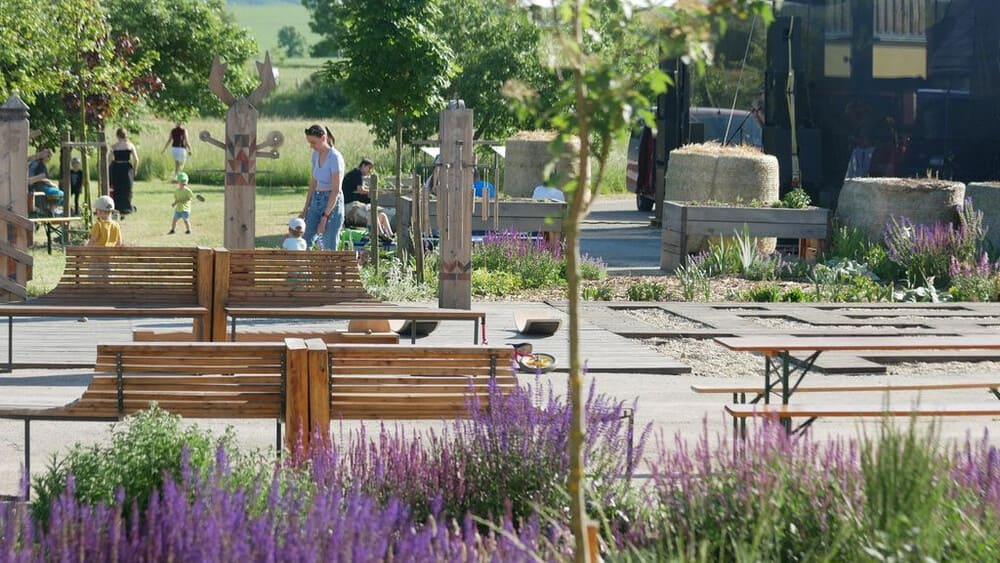
Basic info
Country:
Area:
Population:
Density:
Summary:
References:
https://www.zitovsypke.sk/
https://www.aktuality.sk/clanok/LO0zQO8/novomestan-ktory-zo-starej-sypky-vytvara-kulturno-komunitne-centrum/
https://www.prirodnazahrada.eu/zahrady/zahrada-eko-centrum-zito-v-sypke-moravske-lieskove
https://www.zitovsypke.skhttps://www.vopz.sk/park/14022-zito-v-sypke
https://mytrencin.sme.sk/c/23198677/zo-starej-sypky-vybudovali-ekocentrum-neskor-v-nom-bude-i-vystavna-sien.html
https://www.researchgate.net/publication/375086073_Handbook_of_the_Learning_Landscapes_Process_-_Learning_Landscapes_Experiencing_Space_and_Creating_Place_Together_Output_O1_of_the_Erasmus_2020-1-SK01-KA203-078379_LeLa_-_Learning_Landscapes
Keywords
Gallery
“We want to show children topics they learn about in school in a different way. It's important to show them things that aren't in textbooks.”
Issues Addressed
The civic association (CA) ŽiTo v SÝPKE, co-founded by Viktor Kakaš, decided to increase cultural and environmental awareness, as well as enhance community life in the Považie region. It introduced an innovative approach to making use of an old granary while promoting sustainable practices within an abandoned agricultural co-operative. ŽiTo v SÝPKE was established in 2018 with the aim of organising environmental, cultural, and community activities for the general public. At the heart of ŽiTo v SÝPKE’s mission lies a strong commitment to nature-based learning. In the certified Natural Garden, which covers nearly two hectares, the association provides experiential education programmes for children from kindergartens and primary schools. These interactive sessions focus on understanding natural systems, biodiversity, and the importance of sustainable living, using the garden as a living classroom.
Approaches and Solutions
The association reused an existing object of an old granary in an abandoned agricultural cooperative and transformed it into a community-cultural-civic centre with nature garden, nature-based solutions, and water retention measures applied in the former orchard. The CA encourages sustainable agricultural practices by promoting permaculture principles. The spacious ground serves as a demonstration Nature garden of various biotopes for environmental education as well as a therapeutic garden with raised beds for people with disabilities. Inclusivity, enhancing biodiversity and promoting community engagement are all important components of the E.K.O. centre spirit. The association ensured a unified visual aesthetic by designing the info panels, architecture, and artistic play elements in the garden with a distinctive style, thereby promoting the centre’s identity. The eco-centre serves as a gallery, a space for various workshops and educational activities for schools and the general public.
Actors and Stakeholders
The CA found an engaged private owner of a two-hectare plot of an abandoned agricultural cooperative with an old granary, who was willing to provide their property for planned activities. The association has actively involved local community members who have participated in various programmes and activities since the beginning. ŽiTo v SÝPKE’s stakeholders encompass founders, local residents, educational institutions, environmental organisations (Nature Garden, Ovocný strom o.z. – Fruit Tree civic association), volunteers, local government (Trenčín self-governing region), and the general public. Individuals who visit the centre for workshops, cultural events, or educational programmes are stakeholders as well. Their feedback and participation help to shape future activities. This diverse network supports the association’s goals of promoting environmental education and fostering community engagement and shared responsibility towards environmental issues.
Challenges and Opportunities
Securing the necessary funding to implement and design a large project such as an eco-centre is a lengthy process that requires a lot of resources and endurance. It is essential to recognise the important role played by local government actors in providing resources and legitimacy to initiatives such as ŽiTo v SÝPKE. This support can facilitate community development efforts and the implementation of innovative projects. One of the challenges is to develop a stronger linkage between local bottom-up initiatives and the municipality to achieve synergies and long-term results.
Outcomes and Lessons Learnt
ŽiTo v SÝPKE plays a vital role in promoting environmental sustainability, cultural engagement, and community development through its diverse range of activities. The ECO centre, with its garden, serves for environmental education throughout the year. Environmental issues such as loss of biodiversity, edible plants, and stormwater management are presented, creating on-site experiential education opportunities for students. The association attracts the attention of external communities who participate in various programmes and workshops, helping to fulfil the CA’s mission. In summary, ŽiTo v SÝPKE has made significant strides in environmental education and community engagement through the development of educational facilities, gardens, and programmes, as well as by fostering community involvement in sustainability efforts. These achievements underscore its impact on promoting a sustainable relationship between people and nature.
Selected major projects and awards
- Development of a Demonstration Nature Garden on 2 hectares plot. This garden serves as an educational tool for visitors and local schools, showcasing sustainable gardening practices and promoting biodiversity (2021)
- Certificate for Demonstration Nature Garden (2023)
- Renovation of the old Granary Building into a cultural and educational centre, which now features interactive exhibitions aimed at educating children about nature and sustainability. This project enhances the association’s capacity to host educational programs and community events (2020-2023)
- Establishment of Stormwater retention measures / rain garden and retention pond / (2021)
- Development of various educational programs aligned with the Slovak Ministry of Education’s curriculum. These programs focus on natural sciences providing hands-on learning experiences for students (since 2022 ongoing)
- Regularly organised thematic workshops, swap events, exhibitions, market (since 2022 ongoing)
- Grey to Green – project that transformed part of the road infrastructure of the agricultural cooperative into a green one (2024)

